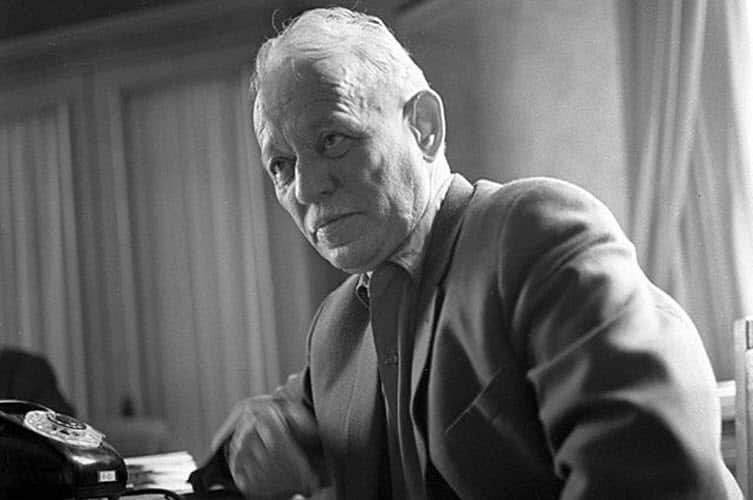Mikhail Sholokhov (24 May 1905 – 21 February 1984) was a Russian novelist. He was awarded the 1965 Nobel Prize in Literature.
Life and Career
He was born on 24 May 1905, in Veshenskaya, Russia. After completing his early schooling in Veshenskaya, Sholokhov went on to study in Rostov-on-Don. It was during this time that he developed a deep interest in literature and began writing short stories and poems. His talent was evident even at a young age, and he quickly gained recognition for his exceptional storytelling abilities.
His literary career took off with the publication of his first novel, “Quiet Flows the Don,” in 1928. This monumental work portrayed the lives of the Don Cossacks during the tumultuous years of World War I and the Russian Revolution. The novel, characterized by its vivid descriptions and complex characters, earned Sholokhov widespread acclaim and established him as a prominent voice in Russian literature.
Following the success of “Quiet Flows the Don,” he dedicated years of meticulous research and writing to create the second part of the epic, titled “The Don Flows Home to the Sea.” This continuation delved further into the lives of the Cossack community and the challenges they faced during the post-revolutionary period. The combined impact of these two novels solidified Sholokhov’s reputation as a master storyteller.
He died on 21 February 1984, in Veshenskaya, Russia.
Award and Legacy
In 1965, he became the first Soviet writer to be awarded the Nobel Prize in Literature for his outstanding portrayal of the Russian people’s resilience and spirit in the face of adversity.
His legacy continues to resonate in the literary world and beyond. His ability to capture the essence of human experience, coupled with his profound understanding of the historical and social context, has made his works timeless. Through his stories, Sholokhov sheds light on the complexities of the human condition, the struggles of ordinary people, and the enduring power of hope.
His works have been translated into numerous languages, allowing readers worldwide to appreciate the depth and beauty of his storytelling. His literary style, characterized by its evocative descriptions, intricate characterizations, and powerful narratives, has influenced generations of writers and continues to inspire aspiring authors.

